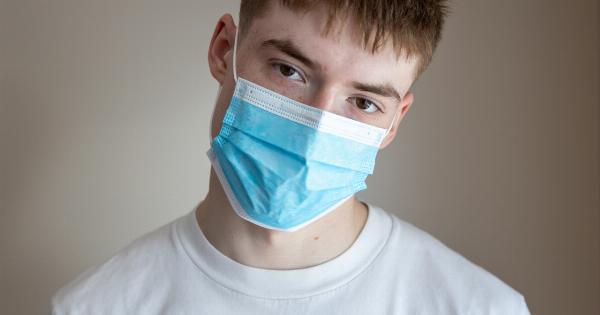Psoriasis is a chronic autoimmune disease that affects the skin, causing itchy, scaly, and inflamed patches.
Understanding Psoriasis
Psoriasis is a non-contagious skin condition characterized by red patches of skin covered with silver-colored scales. It occurs when the immune system mistakenly attacks healthy skin cells, causing them to multiply rapidly.
This rapid cell turnover leads to the formation of thick, scaly patches known as plaques.
Types of Psoriasis
There are several types of psoriasis, including:.
- Plaque psoriasis: This is the most common form of psoriasis, characterized by raised, red patches covered with silver or white scales.
- Guttate psoriasis: This type appears as small red spots on the skin. It is often triggered by bacterial or viral infections, such as strep throat.
- Inverse psoriasis: Inverse psoriasis affects the skin folds, such as under the breasts, in the armpits, or in the groin area. It causes smooth, red patches that worsen with friction and sweating.
- Pustular psoriasis: Pustular psoriasis is characterized by white pustules surrounded by red skin. It can be localized or generalized, affecting large areas of the body.
- Erythrodermic psoriasis: This is the rarest and most severe form of psoriasis, causing widespread redness, itching, and peeling of the skin.
Impact on Quality of Life
Psoriasis can have a profound impact on a person’s quality of life. The physical symptoms, such as itching and pain, can be debilitating and affect one’s ability to perform daily activities.
Moreover, psoriasis has psychosocial implications. The visible nature of the disease can lead to feelings of self-consciousness, embarrassment, and stigmatization.
Individuals with psoriasis may experience psychological distress, lowered self-esteem, and even depression.
Physical Challenges
Psoriasis symptoms can vary significantly from person to person, but common physical challenges associated with the condition include:.
- Itching and pain: The red, scaly patches caused by psoriasis often itch, leading to constant scratching and potential skin damage. The affected areas may also feel painful or tender.
- Discomfort: Psoriasis can cause a significant amount of discomfort due to the inflamed and irritated skin. This can make it difficult to relax and get restful sleep.
- Joint stiffness: In some cases, psoriasis can lead to inflammation and stiffness in the joints, a condition known as psoriatic arthritis. This can make it challenging to perform simple tasks or engage in physical activities.
Psychosocial Impact
The impact of psoriasis extends beyond physical symptoms and can greatly affect a person’s mental and emotional well-being. The psychosocial challenges associated with psoriasis include:.
- Self-esteem issues: The highly visible nature of psoriasis can lead to feelings of self-consciousness and embarrassment. Individuals with psoriasis may feel self-esteem issues, impacting their confidence and overall quality of life.
- Depression and anxiety: The emotional toll of living with a chronic condition like psoriasis can contribute to the development of depression and anxiety. The constant stress and worry about flare-ups, social interactions, and self-image can take a significant toll on mental health.
- Social isolation: Many individuals with psoriasis report feeling isolated or socially excluded due to their condition. The fear of judgment or rejection can lead to avoiding social activities or withdrawing from relationships.
Treatment and Management
While there is currently no cure for psoriasis, various treatment options can help manage the symptoms and improve the overall quality of life. These may include:.
- Topical treatments: Creams, ointments, and shampoos containing corticosteroids, vitamin D analogs, or retinoids can be applied directly to the affected areas to reduce inflammation and scaling.
- Phototherapy: Also known as light therapy, this treatment involves exposing the skin to controlled amounts of natural or artificial ultraviolet light to slow down the rapid cell turnover.
- Systemic medications: Oral or injected medications, such as methotrexate, cyclosporine, and biologics, can help suppress the immune system and reduce inflammation throughout the body.
- Lifestyle modifications: Adopting a healthy lifestyle with regular exercise, stress management, and a balanced diet can help minimize flare-ups and improve overall well-being.
Coping Strategies
Living with psoriasis requires a proactive and holistic approach to manage the physical and emotional challenges. Some coping strategies include:.
- Educating oneself: Understanding the condition, its triggers, and available treatment options can empower individuals to make informed decisions and actively participate in their care.
- Building a support network: Connecting with others who have psoriasis through support groups or online communities can provide emotional support, encouragement, and a safe space to share experiences.
- Practicing stress management: Stress is a known trigger of psoriasis flare-ups. Incorporating stress-reduction techniques such as meditation, yoga, or deep breathing exercises can help manage symptoms.
- Talking to a mental health professional: Seeking therapy or counseling can help individuals navigate the emotional challenges associated with psoriasis and develop healthy coping mechanisms.
Conclusion
Psoriasis is more than just a skin condition—it significantly impacts a person’s quality of life. The physical symptoms, combined with the psychosocial challenges, can take a toll on emotional well-being and overall life satisfaction.
However, with effective treatment, management strategies, and a supportive network, individuals with psoriasis can lead fulfilling lives and overcome the obstacles posed by their condition.





























